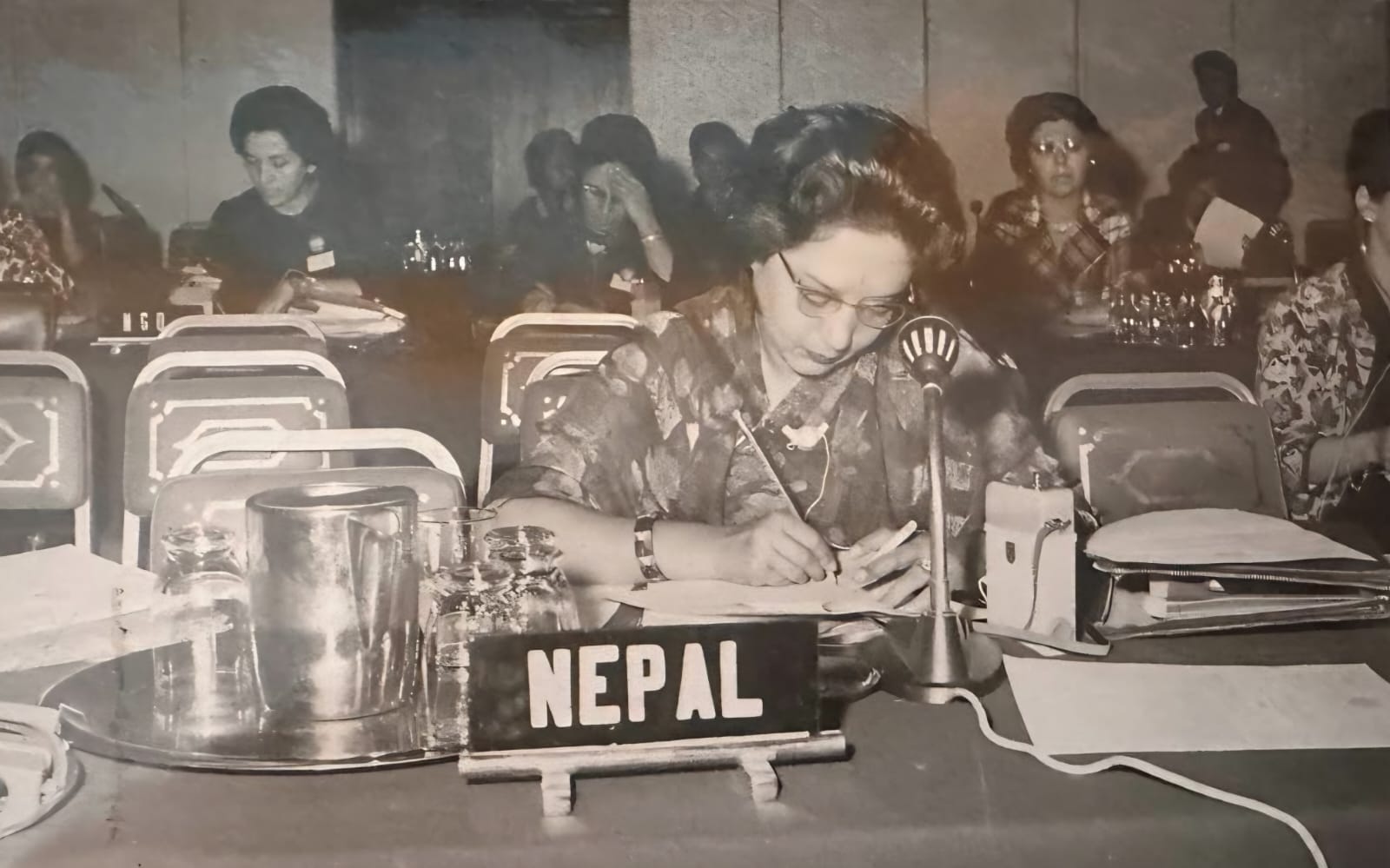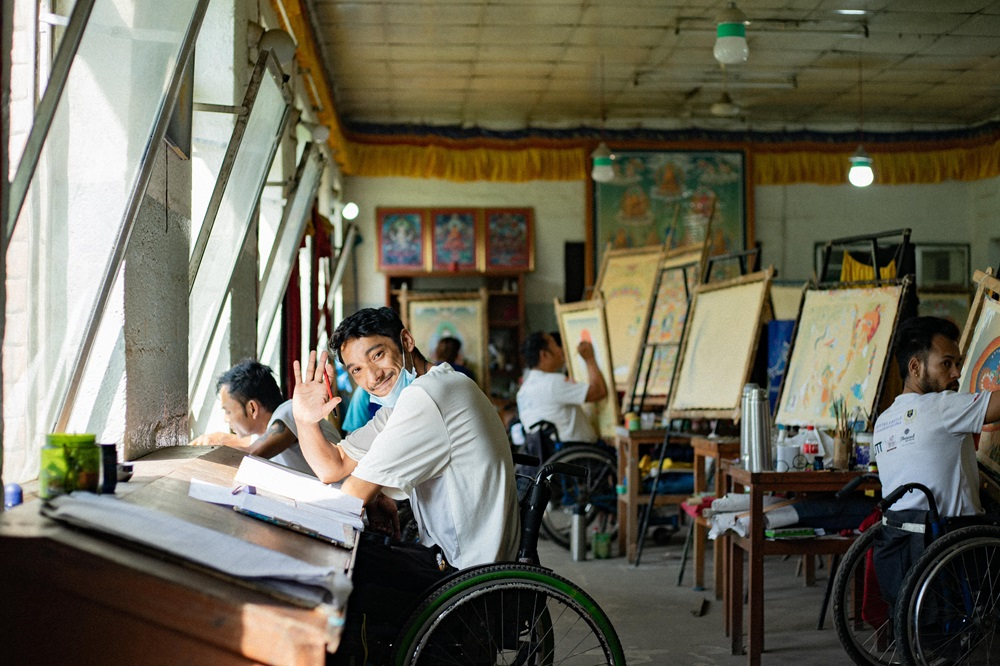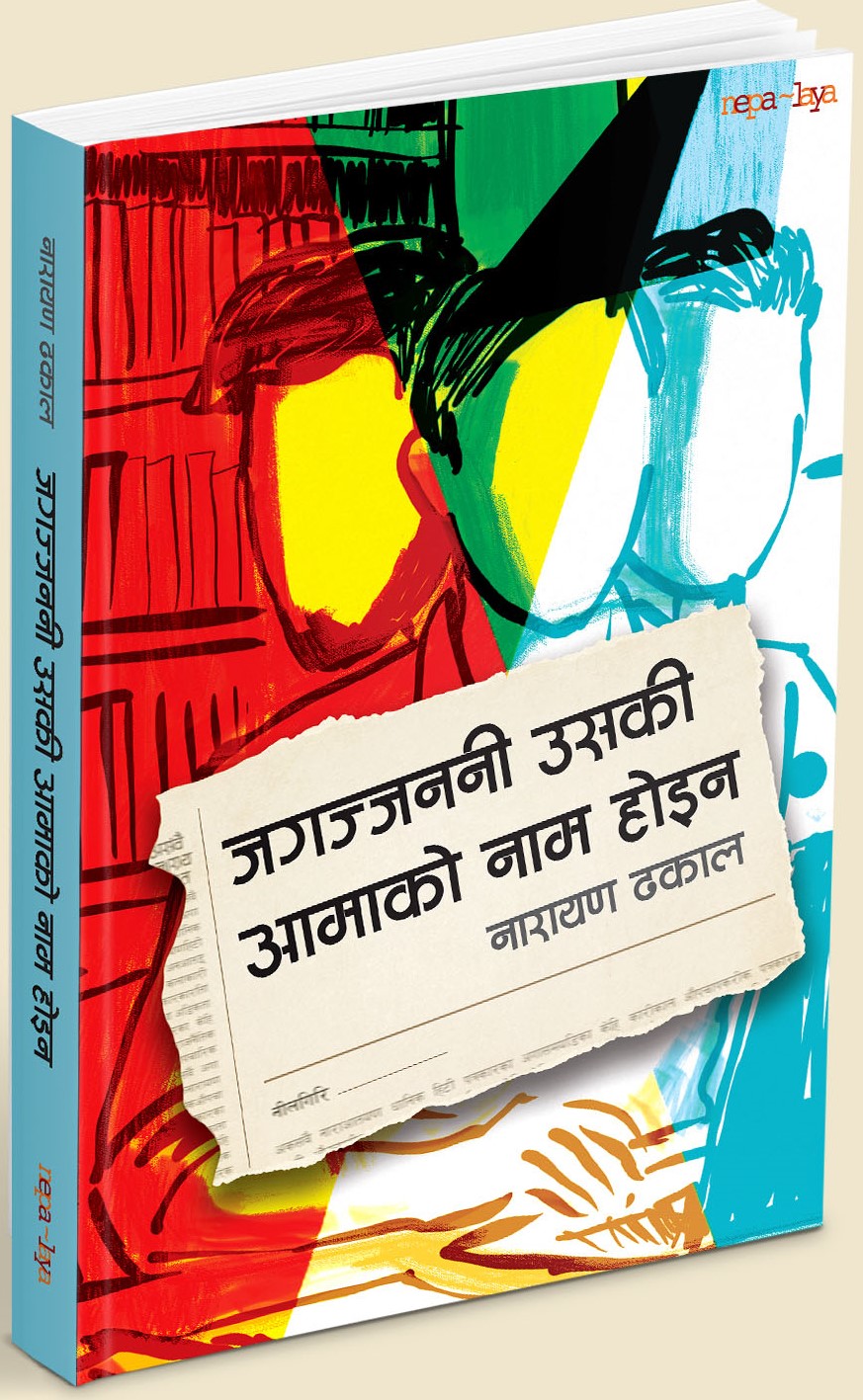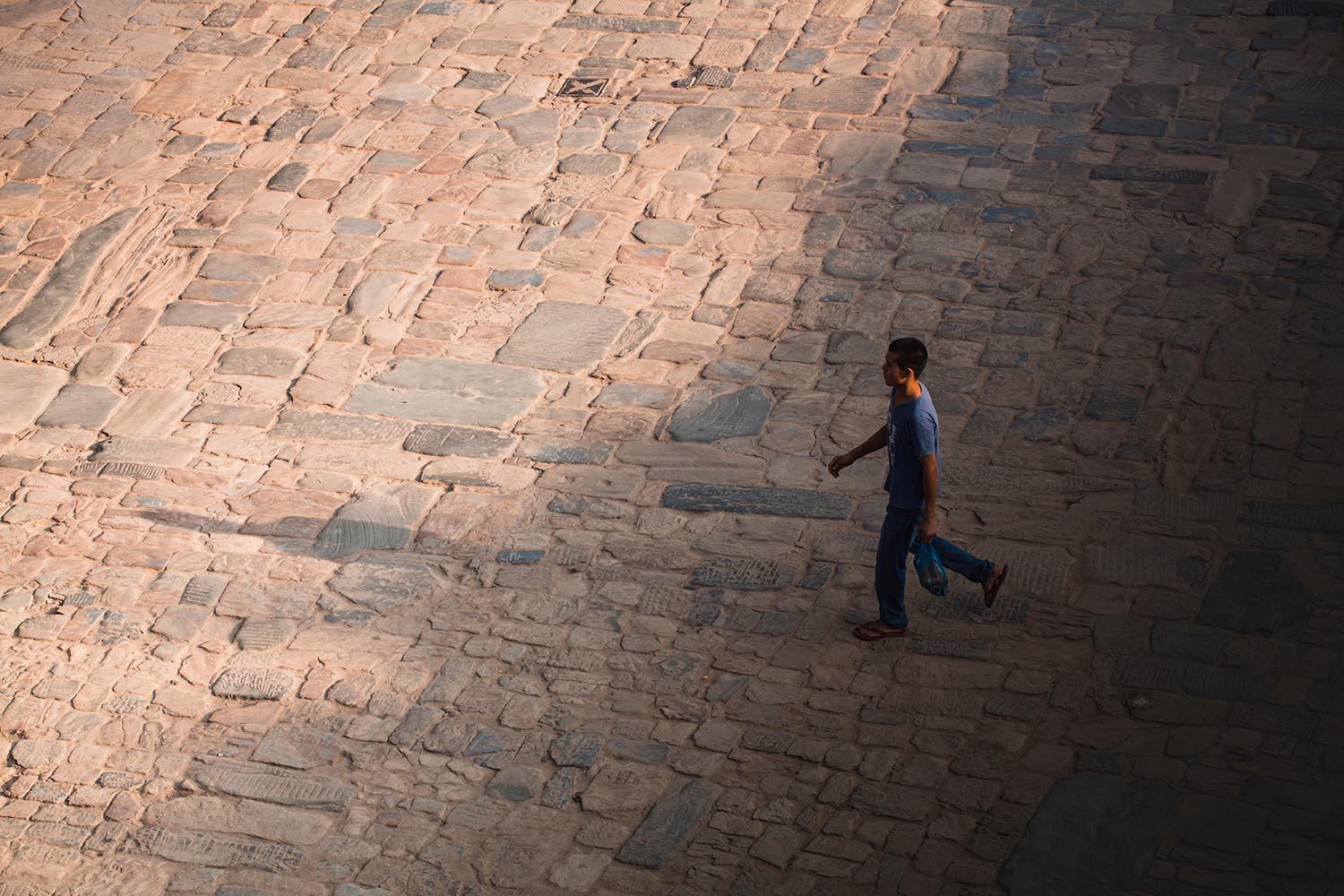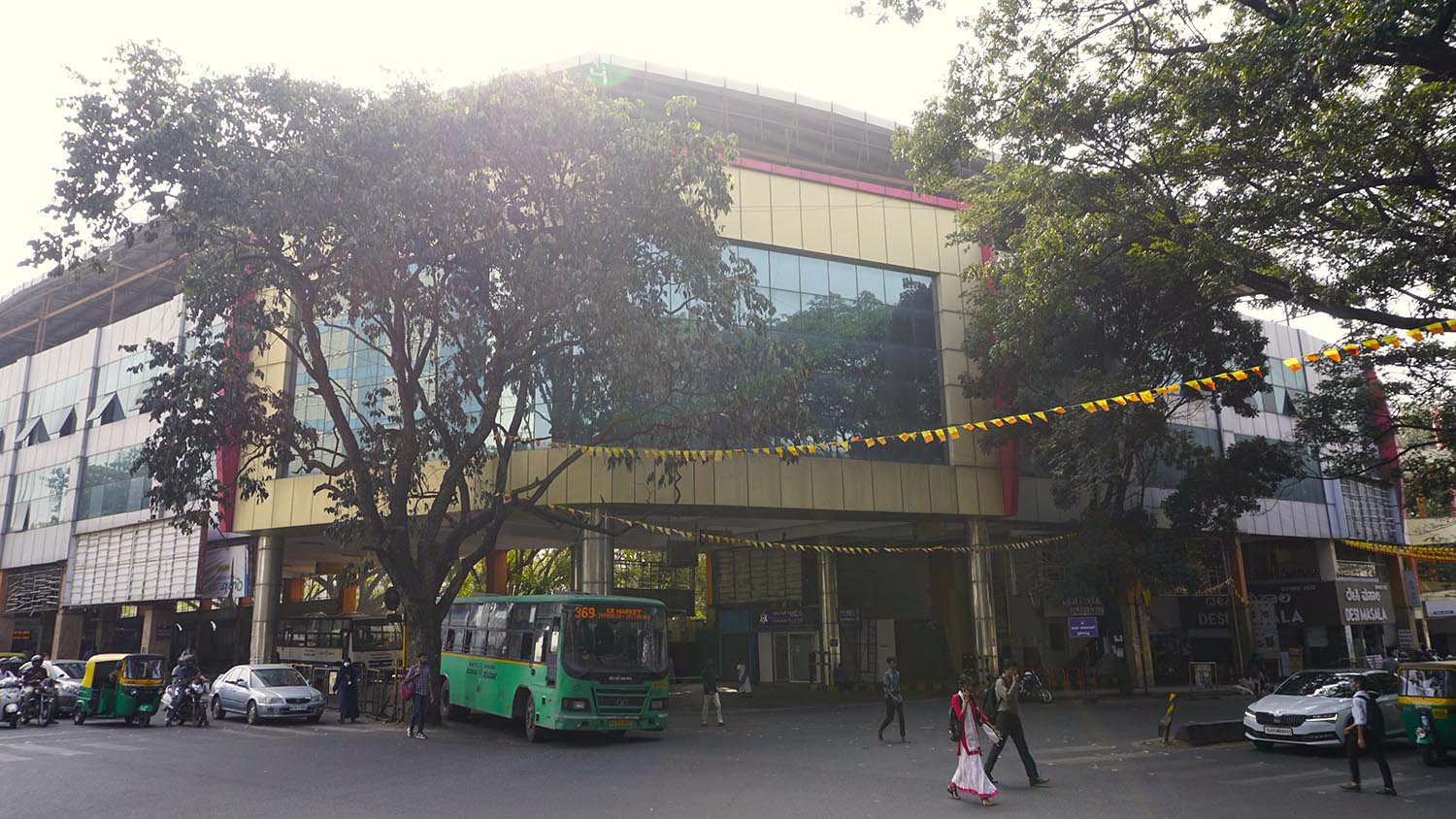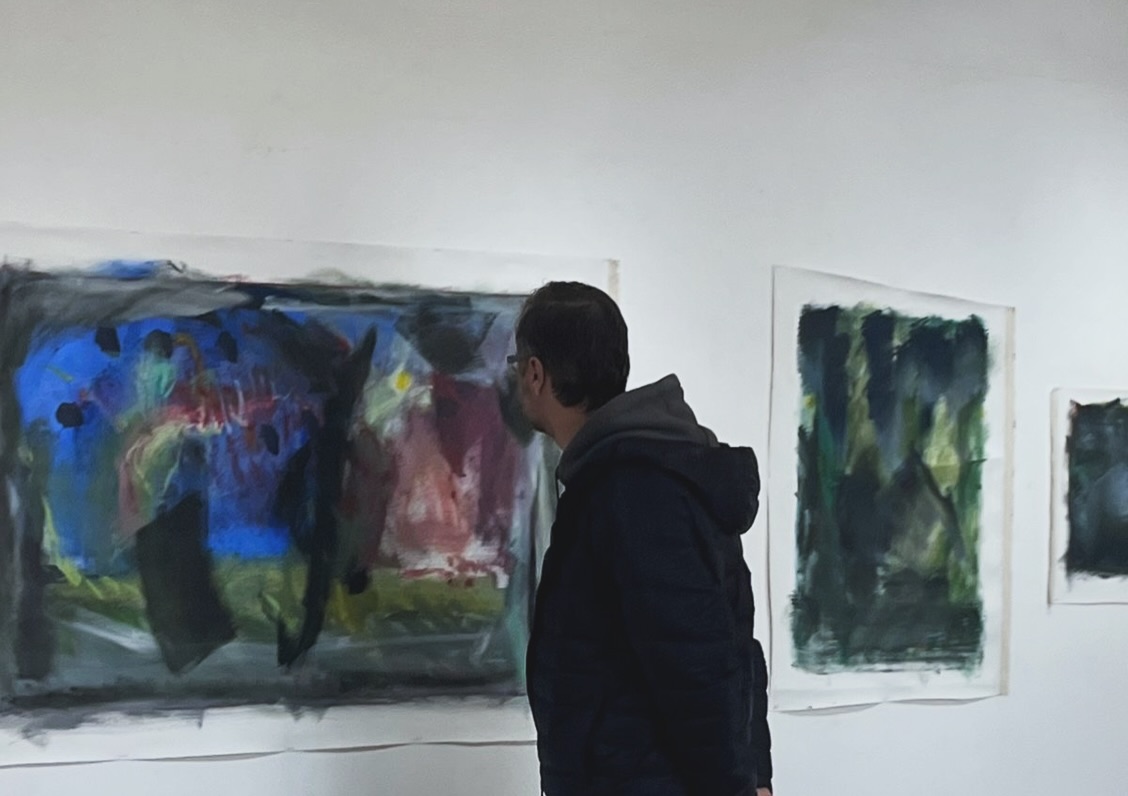Culture & Lifestyle
Tracing Prem Dhoj Pradhan’s long and remarkable career in Nepali music
Pradhan’s songs are masterpieces that defined the start of the Nepali music industry and they are still cherished by many, making his legacy eternal.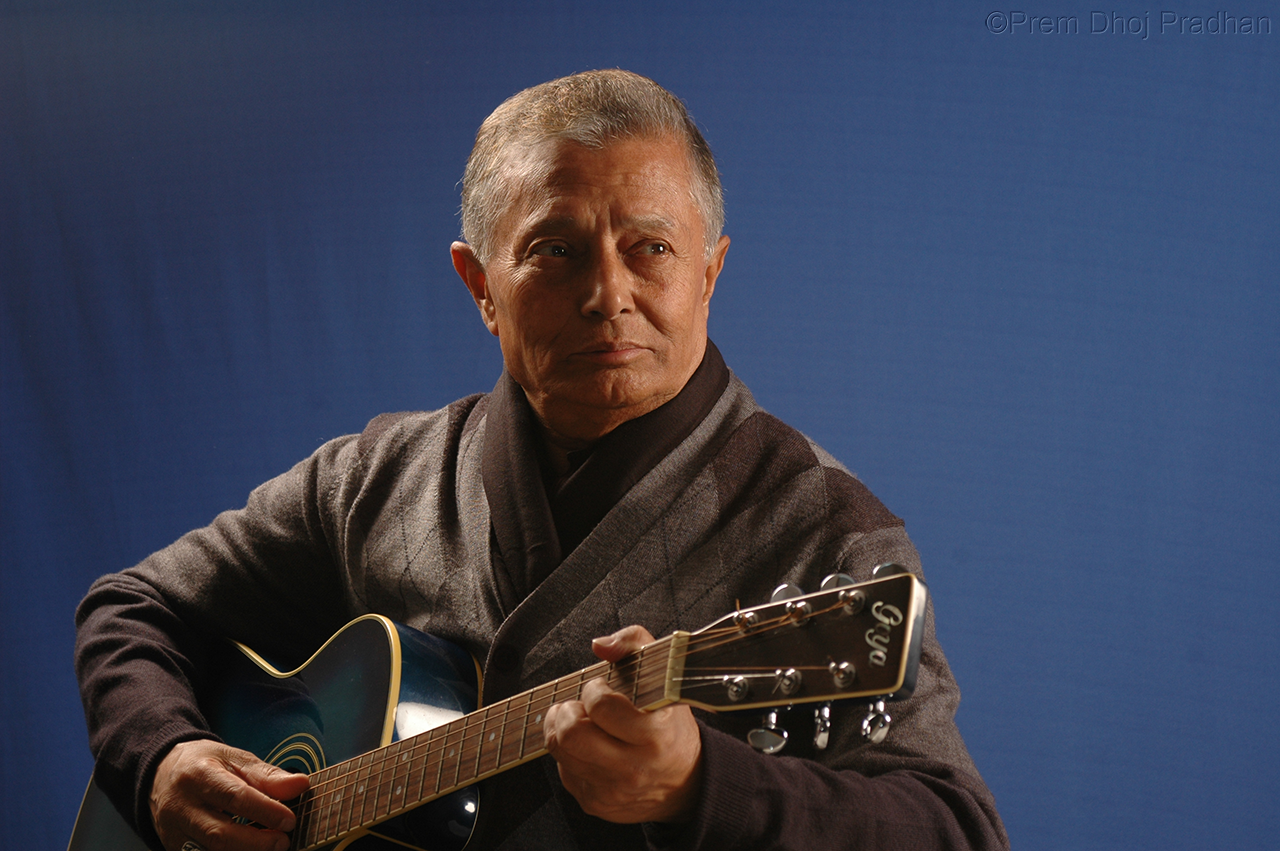
Ankit Khadgi
It was the year 1952 when Prem Dhoj Pradhan decided to give a voice test for Radio Nepal. Young, vibrant, and passionate, Pradhan was only 14 years old when he decided to take a chance on his voice. He is now 82, but he clearly remembers the details of the day.
“Every Sunday, Radio Nepal used to conduct voice tests. I just went there unplanned and sang a Hindi song I had seen in the cinema hall a year before,” says Pradhan.
The decision not only became a turning point in his life, but also for Nepali music, as he went on to become one of the most revered singers and composers in Nepali modern music, coming up with gems like Ghumti Ma Na Aau Hai, Namana Laaj Yastari, Para Laijau Phool Haru, Rajamati Kumati, among many others.
In his career of almost seven decades, Pradhan, a living legend, has sung more than 700 songs in Nepali and Nepalbhasa, earning him the title of the ‘Golden Voice of Nepal’.
Born in 1938 in Chautara, Sindhupalchok, to Ratna Dhoj Pradhan, a businessman, and Pran Devi Pradhan, an artist, Prem Dhoj Pradhan’s original name was Ganesh Dhoj Pradhan. It was only during his school days that he was renamed Prem Dhoj Pradhan, he says.
“My headmaster named me after him as he thought the name Prem would do justice to me,” says Pradhan, who started studying when he was eight in Vishwaniketan School at Lagan tole.
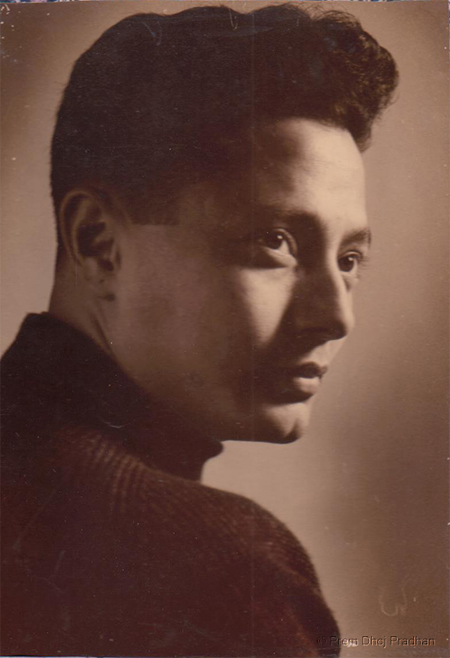
Growing up in Bangemuda, in a family whose lives revolved around arts and music, he was motivated to try his hands on singing and playing musical instruments at a young age, he says.
“My grandfather had a knack for classical music. Every night from 10 to 11 pm, we used to secretly tune in to the radio, which my father had bought from Calcutta (Kolkata),” says Pradhan.
They had to do so secretly because, during the Rana regime, the radio’s reach was limited to elite circles of Rana aristocrats. While the middle-class business people did buy radios, they didn’t have the liberty to listen to it freely as the autocratic Rana rulers were strict with their ‘no radio’ policy.
However, with the advent of democracy in the country, Radio Nepal, which once also used to communicate political information only, started becoming a platform for artists like Pradhan who could sing two songs every month when their turn came, which was decided by the radio.
But this was the time when Nepali modern music was still in its infancy and very few artists had started composing their own songs in the Nepali language. For a budding artist, this was an opportunity that could not be missed and hence he took help from his teacher, Ustad Ganesh Lal Shrestha, under whose guidance he got trained in classical music for 15 months.
“On behalf of my request, he composed the song, Yad Kasaikko Aairahecha Yo Andheri Ratama, which eventually became the first song that I sang on Radio Nepal,” says Pradhan, who now only remembers the title of the song.
But it was his mother, Pran Devi Pradhan, who was a theatre actor at the palace as well as a singer, who was his biggest guru and inspiration, insists the legendary artist. While learning the tabla and practising singing in her company, his interest grew day by day, he says.
After his first break with Radio Nepal, Pradhan’s musical journey began as he started singing, composing as well as performing songs in core Kathmandu’s neighbourhood, along with his group called Nava Kalar, which included young budding artists like him, who later went to become the maestros of Nepali modern music.
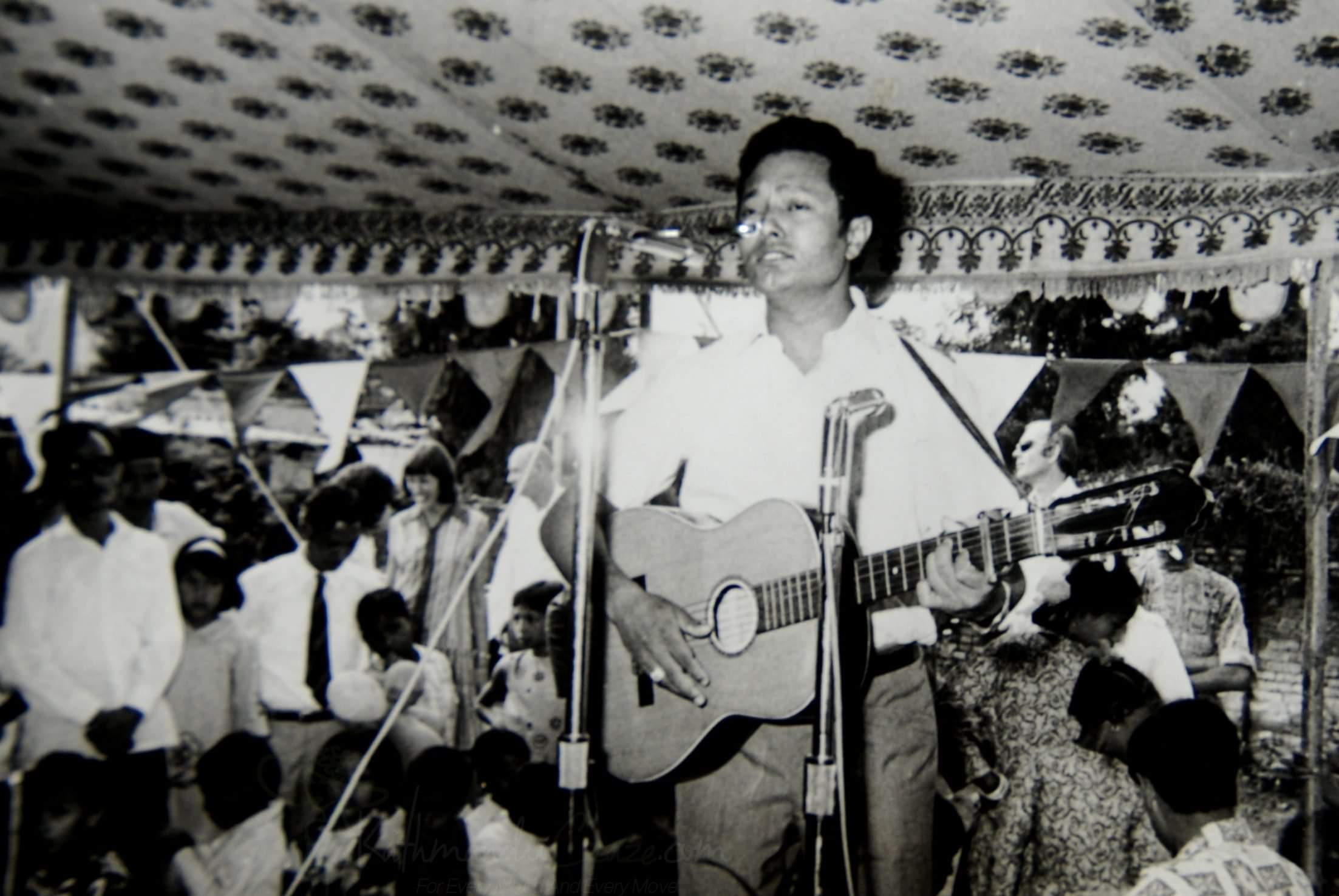
“It was Dr Ram Man Trishit who formed the group of nine artists, which included me, Manik Ratna Sthapit, Narayan Gopal and others. We lived nearby and for all of us, music was a common source of entertainment and aspiration. He encouraged us to conduct cultural programmes, where we played songs once every two months,” says Pradhan.
For seven years, the group performed cultural programmes regularly in the vicinity of Kathmandu, which on average saw an attendance of 100 people, making the group the first to introduce the concept of a concert in the country.
In the meantime, Pradhan was also collaborating with the Manik Ratna Sthapit, with whom he started composing songs under the name Prem-Manik. The duo composed many iconic songs like Goreto Tyo Gaun ko, Sagar ko Chaati ma Nayan, Tyo Khola ko Sagulo Pani and others.
And in 1957, he went to become the first singer along with legendary Tara Devi, to record a song in Radio Nepal, a feat which he still has a vivid memory of.
“We sang Yo Nepali Sir Uchali, which was written by Bhupi Sherchan. This was the first-ever song to be recorded in history,” says Pradhan.
Time passed by. His job at American Library kept him busy. Likewise, he was also studying arts at Saraswoti Campus juggling his time singing songs in Radio Nepal, which demanded sincerity and dedication, as he had to practise for hours, since back then songs were recorded live.
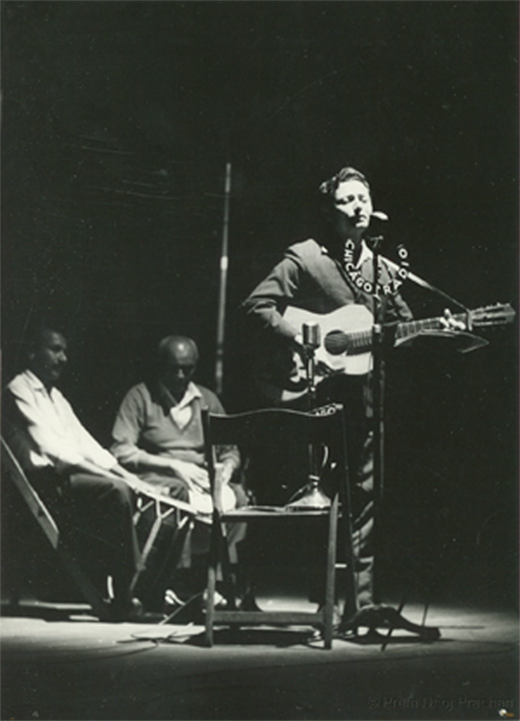
“Those days even if one committed a slight mistake, everyone had to re-perform. That’s why we all, from musicians to singers, used to practise non-stop to perfectly perform the song as there was no room for mistakes since we recorded the songs live,” says Pradhan.
Then in 1960, through his college, he got an opportunity to go on an All India tour as a singer. The opportunity to perform for an international audience excited him, he says. But when he was performing on the stage, he encountered some inconveniences in his throat.
“After I returned, I went to Bir Hospital for a check-up. Through the medical examinations, I found that I had a non-malignant polyp in my left vocal cord,” says Pradhan.
But having to do surgery wasn’t what devastated him. The doctor had told him that his voice might change after the surgery was performed, and this broke his heart, as for him, music was his expression and solace, he says.
“Music has always been my biggest source of comfort. Then, I was unclear about what was in store for me,” says Pradhan, who took a break for a year because of the surgery.
But as said, with every storm, there is a rainbow, and in his life, it was the guitar that brought back colour in his life.
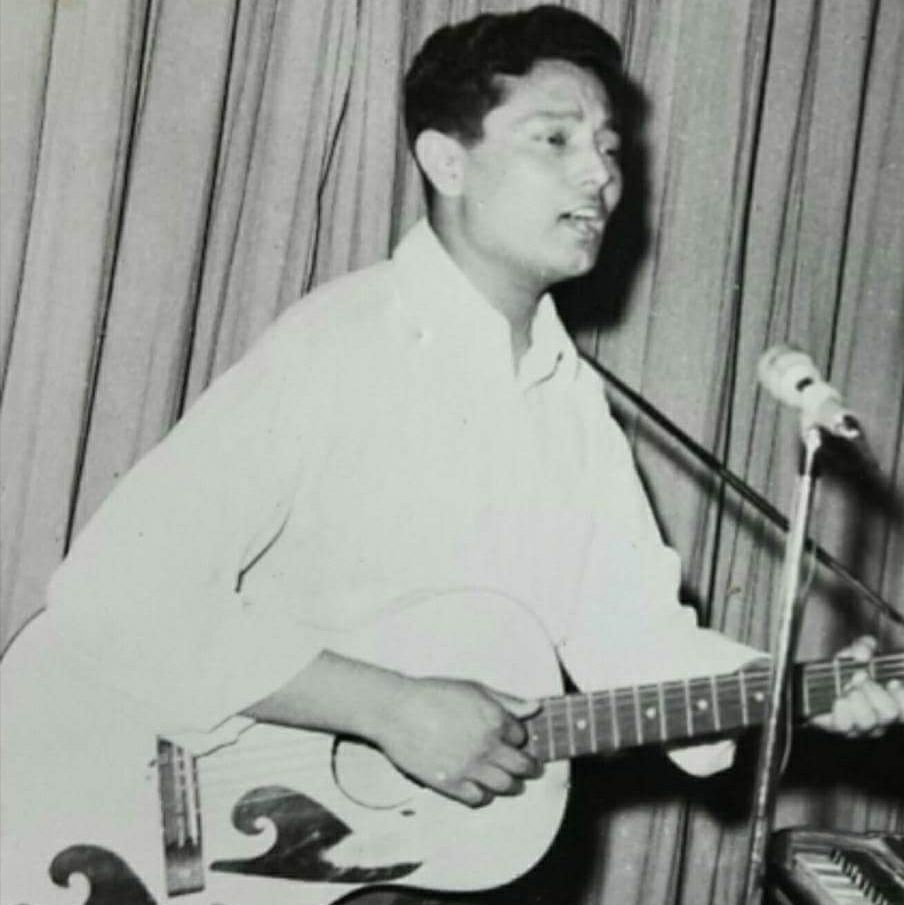
“When I was working in the American library I often met artists who played the guitar. The instrument intrigued me, so I asked my colleague to bring a guitar for me, which cost around Rs 200 then and in my free time I started learning from a fellow artist at Radio Nepal,” says Pradhan, who’s the first Nepali singer who played the guitar as well.
But luckily Pradhan’s voice started getting better after a surgery in Delhi.
“After the surgery, I became a completely new person. My voice became better and the creativity and passion that I had to keep in control for a while because of my health reasons ignited like a fire,” says Pradhan.
In 1962, he caught a bus to Raxaul and took a train to Calcutta to record his songs in a recording studio called Hindustan Recording Company. “I recorded songs like Goreto Tyo Gaun ko, Maya Na Mara Mayalu, and a few Newa songs like Bala Bala Chingu Mikha and Wangu Lapte. After recording the songs I bought 200 lp record copies and sold a few to Radio Nepal,” says Pradhan.
The following year too he went to record songs in Calcutta. However, this time, he recorded six Nepalbhasa songs, among which Rajamati Kumati and Wa Chhu Gali Tho Chu Gali went on becoming the most popular songs in Nepalbhasa, making his contribution in Nepalbhasa music a significant one.
But his list of achievements in the year of 1963 didn’t end with that. He went on to win the award for the best singer in a programme organised to commemorate Radio Nepal’s anniversary, where he won the hearts of everyone present in the programme.
“I still remember that I was the last one to perform. With a guitar in a hand, I started singing Gore Tyo Gau ko, a song which Manik and I had composed. Everyone enjoyed my performance helping me to win the award among the best talents we had back then,” says Pradhan.
By 1965, he had recorded more than 24 songs in Calcutta, but the year became more special when he was one of the first Nepali singers to get an opportunity to sing a song for a Nepali film, he says.
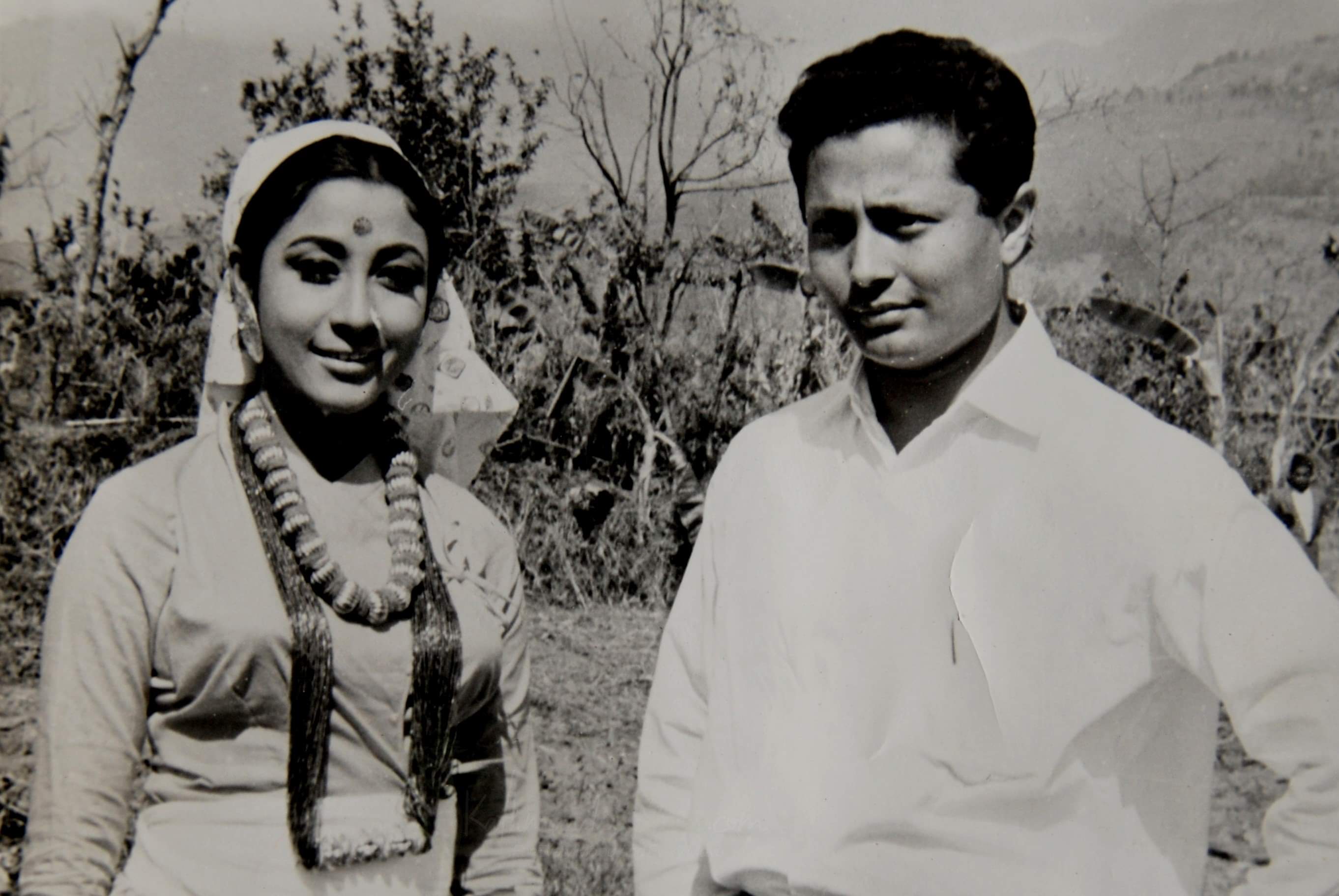
“I was invited by the legendary musician in Bombay (Mumbai), Jaidev, who was composing songs for Maitighar [Nepal’s first movie made by a private banner]. He was really impressed by my talent,” says Pradhan, who went to sing the iconic song Namana Laaj Yastari along with Usha Mangeshkar.
For its beautiful heartfelt lyrics and the soulful voice, the song became instantly popular establishing him again as the most sought-after modern singer and in 1969. He again went to Bombay and worked closely with Jaidev, returning to Nepal a year later after recording more than 10 songs, where he tried to experiment with many musical instruments.
“The 10 months in Bombay were a great learning experience for me as I worked continuously. Looking at my dedication, many artists wanted me to stay there and work in their music industry,” says Pradhan.
But he came back home, for his mother, for his country but most importantly for the love of Nepali music, he says.
Here, he started singing songs for movies like Jeevan Rekha, Mayalu and few others. Likewise, he also started releasing albums, with collections of his own compositions--despite the fact that time was fast catching up to him.
But his love for music never faded away, as for him, music provided comfort and solace, which nothing else could offer, he says.
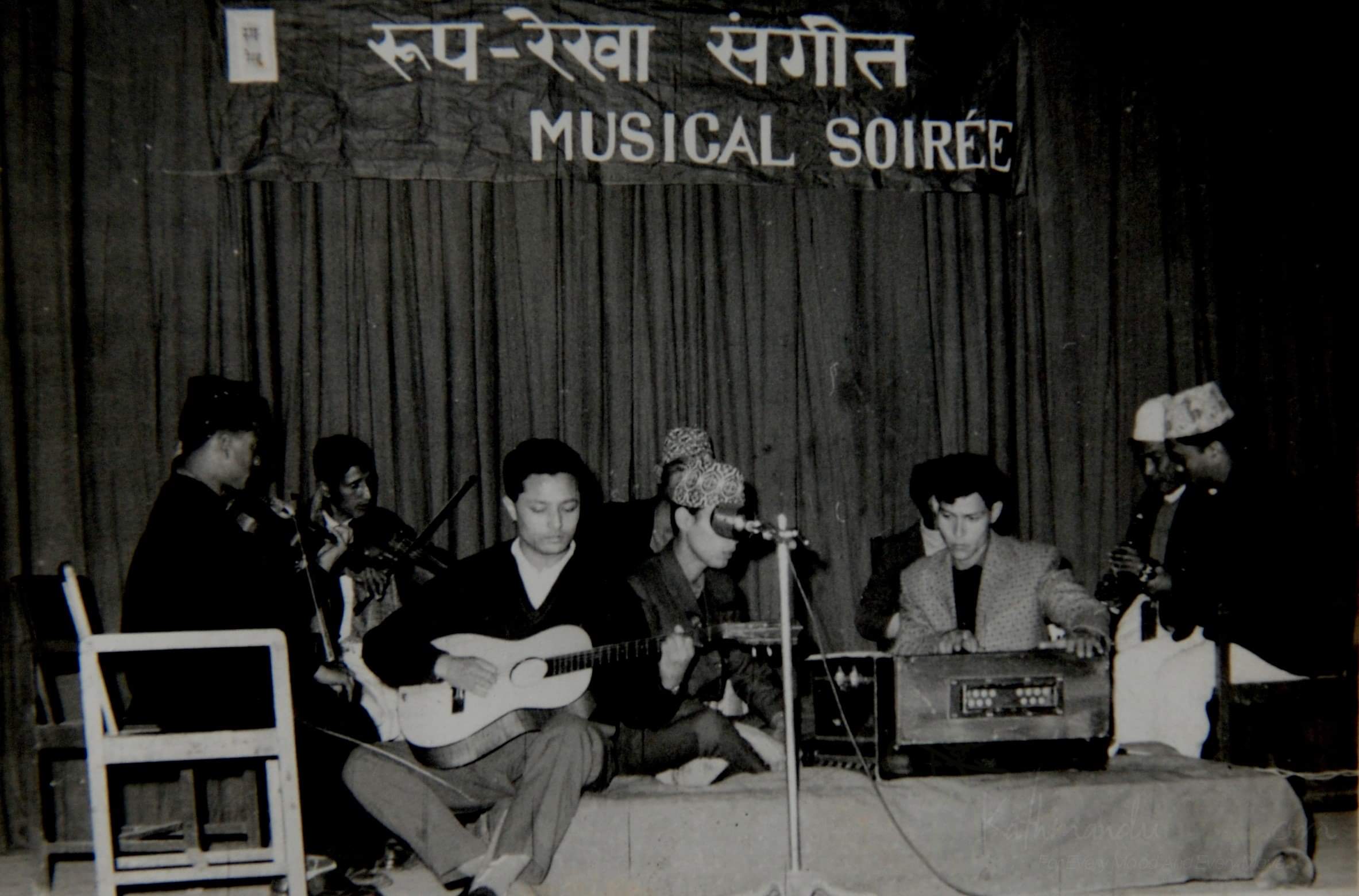
“I had my own fair share of struggles in my life. My parents were divorced when I was young. Likewise, other challenges pestered my life frequently. But in those difficult times, it was always the music that eased my life and helped me battle all my struggles,” says Pradhan.
But looking at the present condition of Nepali music, he feels a sense of discontentment. “Right now it’s too easy as everyone can sing due to technological advancement. Similarly, there aren’t enough good composers as well as singers,” says Pradhan.
He blames the commercialisation of songs for Nepali music to reach the current state of despair. “Everyone is obsessed with making songs that one can dance to. In our times, we used to listen to songs. Now people watch it,” says Pradhan, who believes the change in consumption of songs has led Nepali music to fare poorly.
Having said that, technology has helped to keep his music alive till date. His old songs are uploaded every week on his YouTube channel, operated by his son, which now has more than 7.5k subscribers.
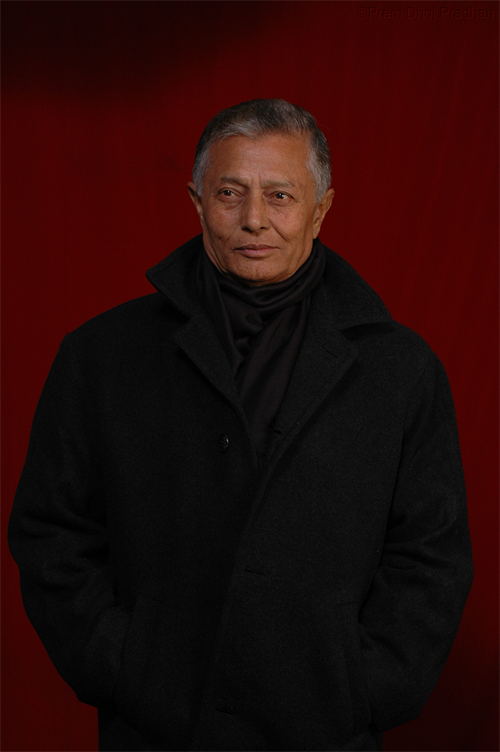
“For artists like us, YouTube has been a great place where we can preserve as well as promote our works to the new generation,” says Pradhan.
Whenever he sees the new generation of singers and artists singing his songs, he feels happy, he says. “I am satisfied with what I have done with the time given to me. I feel happy knowing that what started as an interest for a regular boy like me eventually contributed in uplifting Nepali music,” says Pradhan.




 22.9°C Kathmandu
22.9°C Kathmandu
